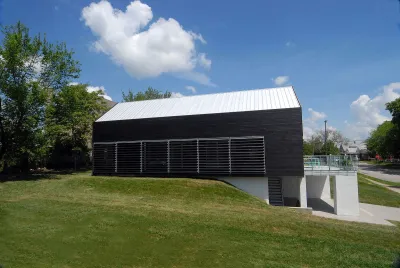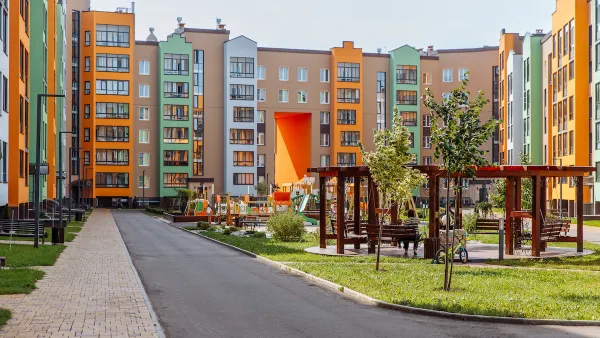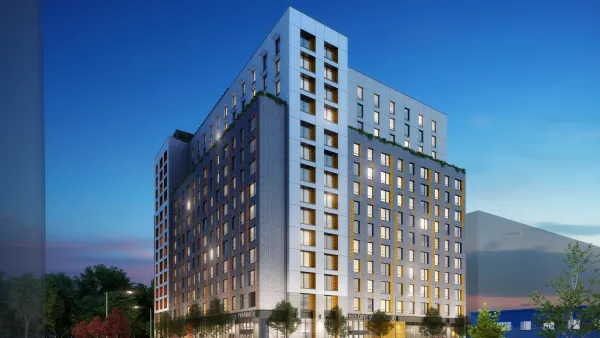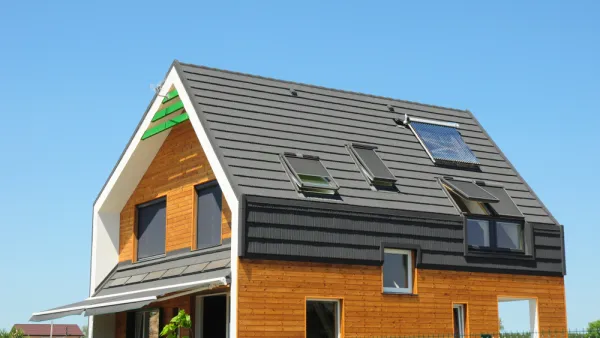Two grant programs aimed at supporting highly efficient, affordable housing developments are yielding promising results.

Two Massachusetts state programs are successfully incentivizing the production of highly efficient affordable housing using passive building. According to an article by Sarah Shemkus, "Early numbers indicate that this building approach costs, on average, less than 3% more than conventional construction and can slash energy use roughly in half."
The programs reward developers who engage in passive house building, defined in the article as "a performance standard that calls for a drastic reduction of energy consumption as compared to a similar, conventionally designed structure. Buildings that meet the standard have airtight envelopes, insulating windows, and continually insulated exterior walls."
Two grant programs launched in 2018 and 2019 by the Massachusetts Clean Energy Center and Mass Save, the organization that administers the utilities’ legally mandated energy efficiency programs have let developers experiment with passive building. "The Passive House Design Challenge awarded eight affordable housing developments $4,000 per unit — for a total of $1.73 million — for new construction built to the passive house standard." Mass Save provides grants for feasibility studies and pre-construction energy modeling. "These incentives have been vital in sparking the growth of high-performance multifamily building, said Dave Traggorth, principal at real estate advisory firm Traggorth Companies, which is currently developing two passive house projects with a total of 57 units."
More efficient design also means lower energy and maintenance costs down the line. "The affordable housing sector has taken a particular interest in passive house building. The increased attention to airflow and air quality, along with better temperature control, make these homes healthier places to live, an advantage for populations that generally face more medical issues (and costs)." Building energy-efficient affordable housing, with its long-term benefits, can benefit both residents and builders.
FULL STORY: Incentives inform and inspire highly efficient affordable housing in Massachusetts

Analysis: Cybertruck Fatality Rate Far Exceeds That of Ford Pinto
The Tesla Cybertruck was recalled seven times last year.

National Parks Layoffs Will Cause Communities to Lose Billions
Thousands of essential park workers were laid off this week, just before the busy spring break season.

Retro-silient?: America’s First “Eco-burb,” The Woodlands Turns 50
A master-planned community north of Houston offers lessons on green infrastructure and resilient design, but falls short of its founder’s lofty affordability and walkability goals.

Test News Post 1
This is a summary

Analysis: Cybertruck Fatality Rate Far Exceeds That of Ford Pinto
The Tesla Cybertruck was recalled seven times last year.

Test News Headline 46
Test for the image on the front page.
Urban Design for Planners 1: Software Tools
This six-course series explores essential urban design concepts using open source software and equips planners with the tools they need to participate fully in the urban design process.
Planning for Universal Design
Learn the tools for implementing Universal Design in planning regulations.
EMC Planning Group, Inc.
Planetizen
Planetizen
Mpact (formerly Rail~Volution)
Great Falls Development Authority, Inc.
HUDs Office of Policy Development and Research
NYU Wagner Graduate School of Public Service




























